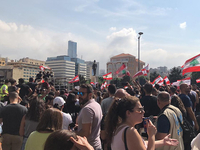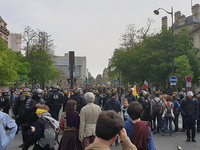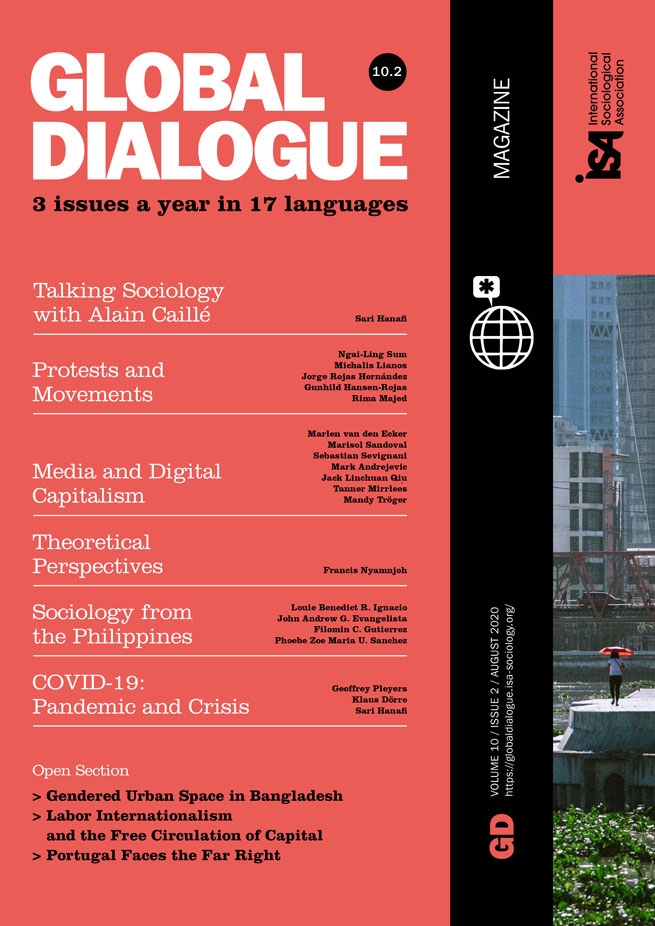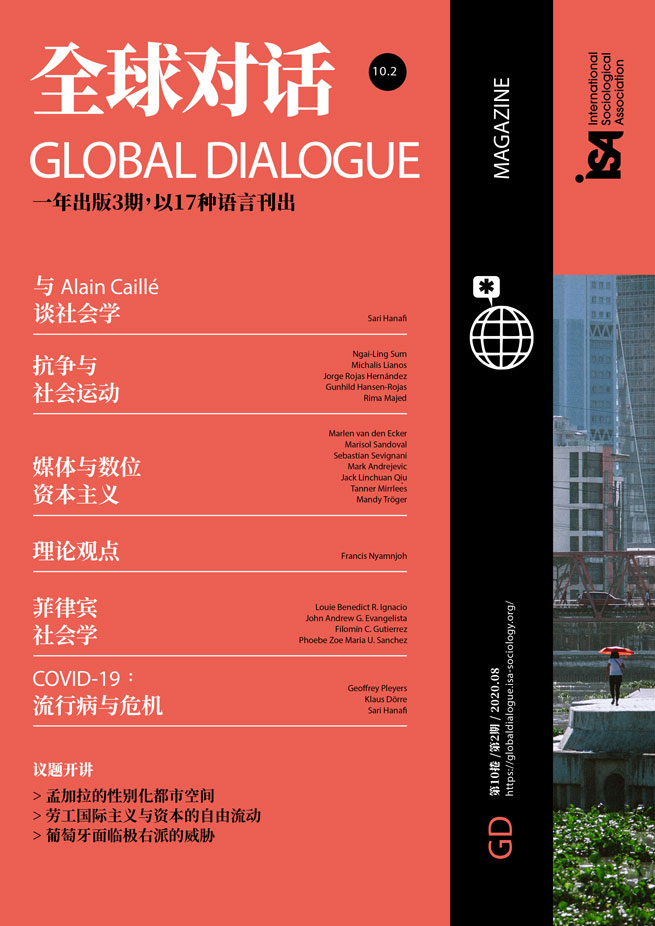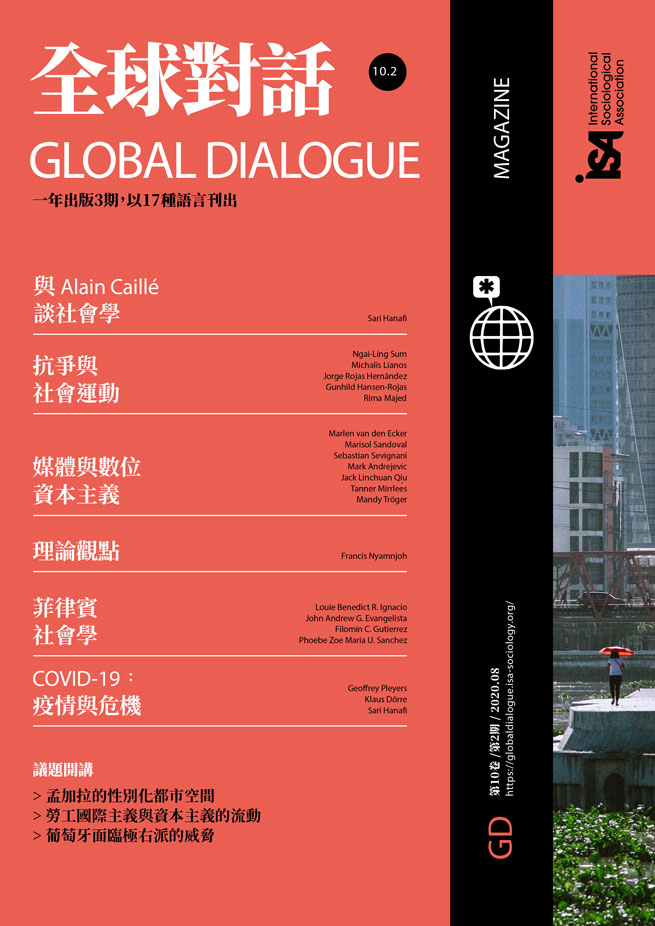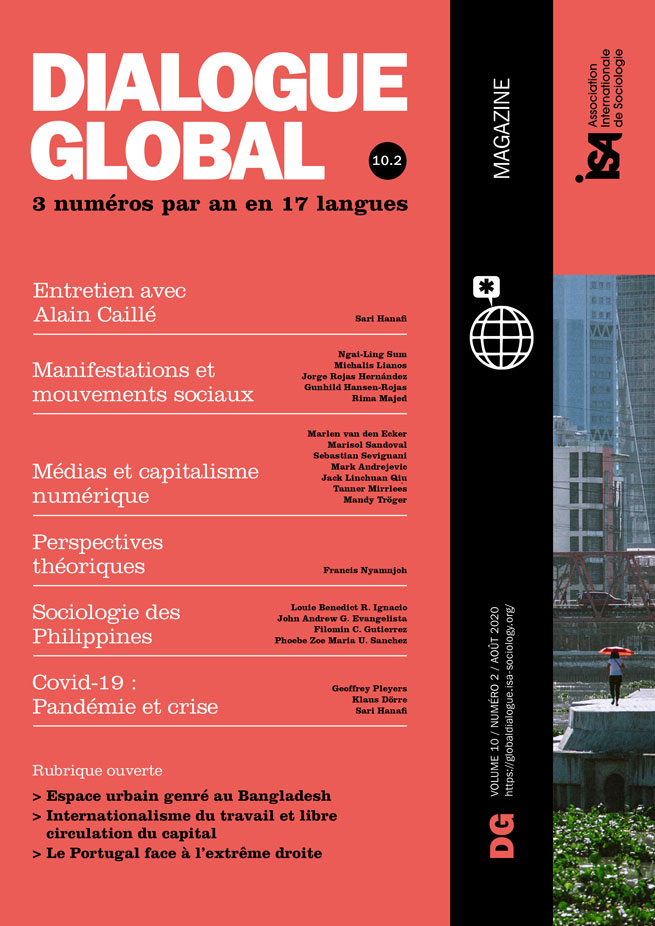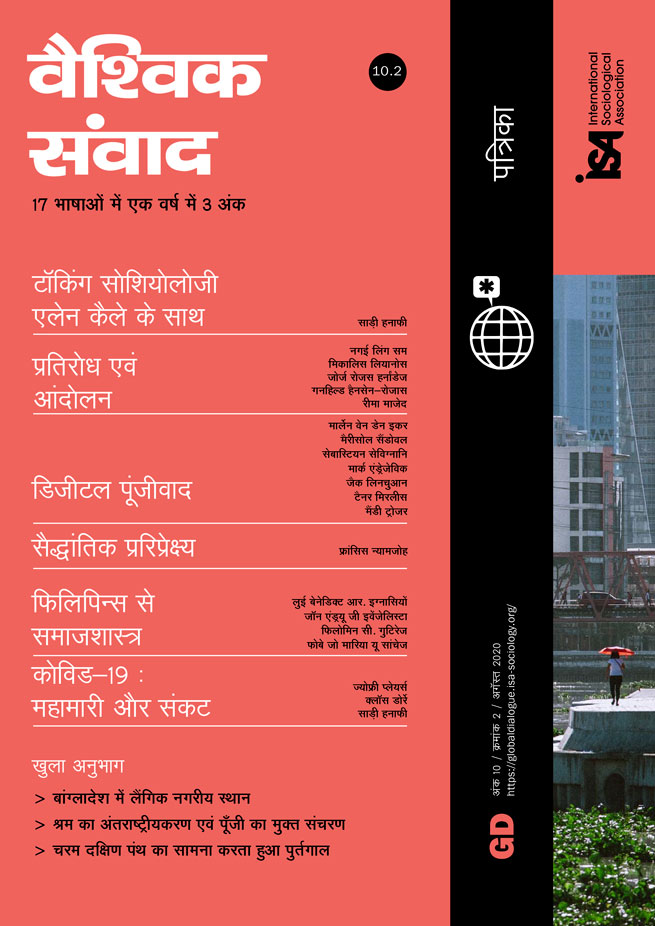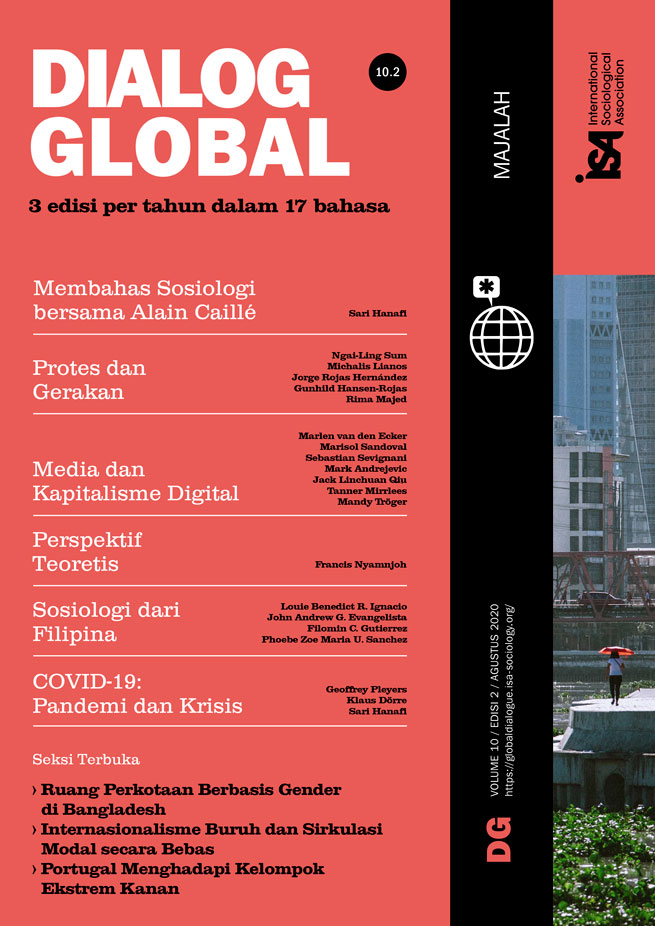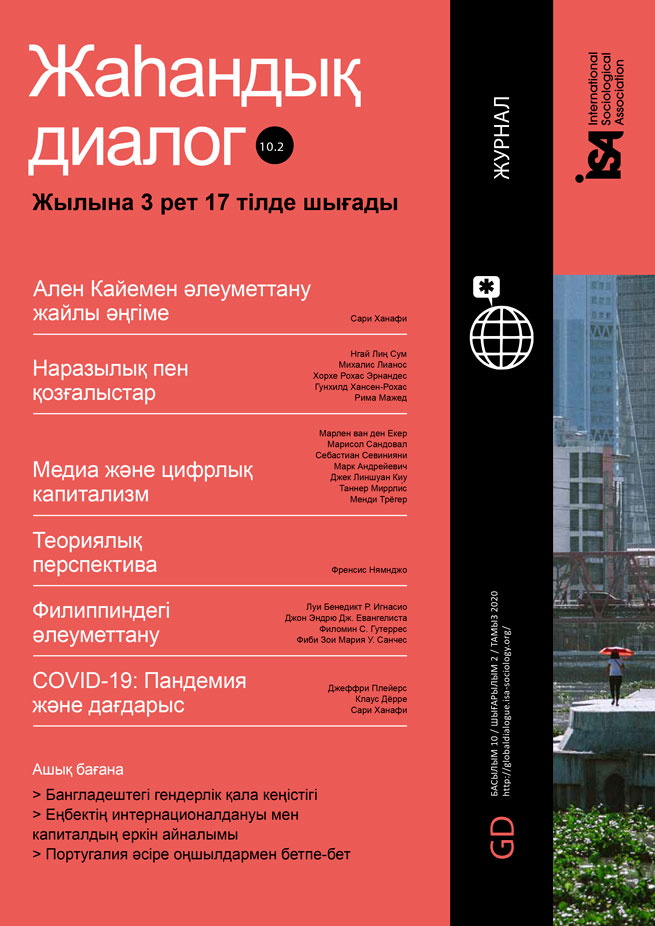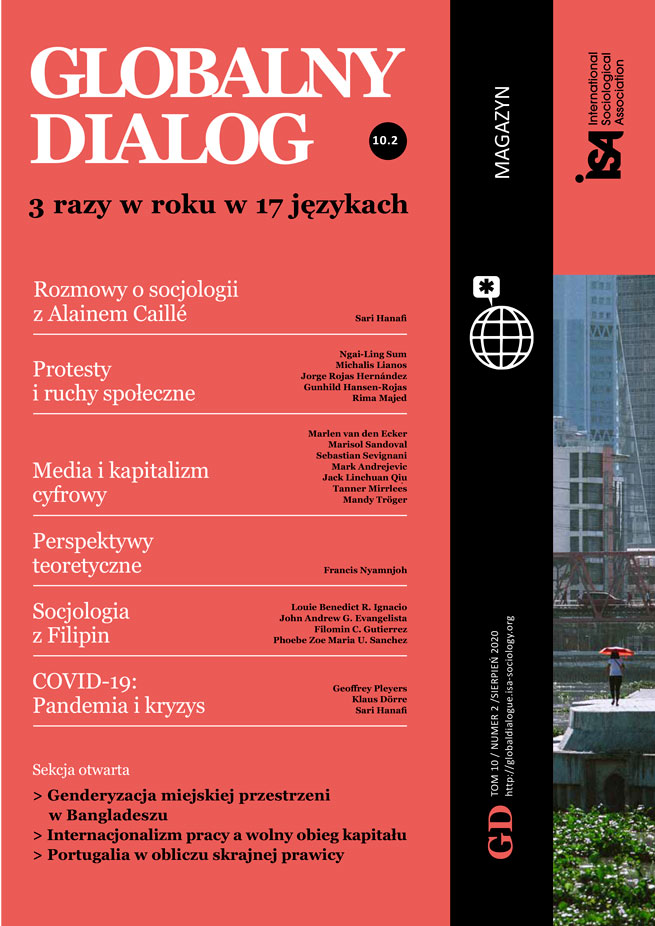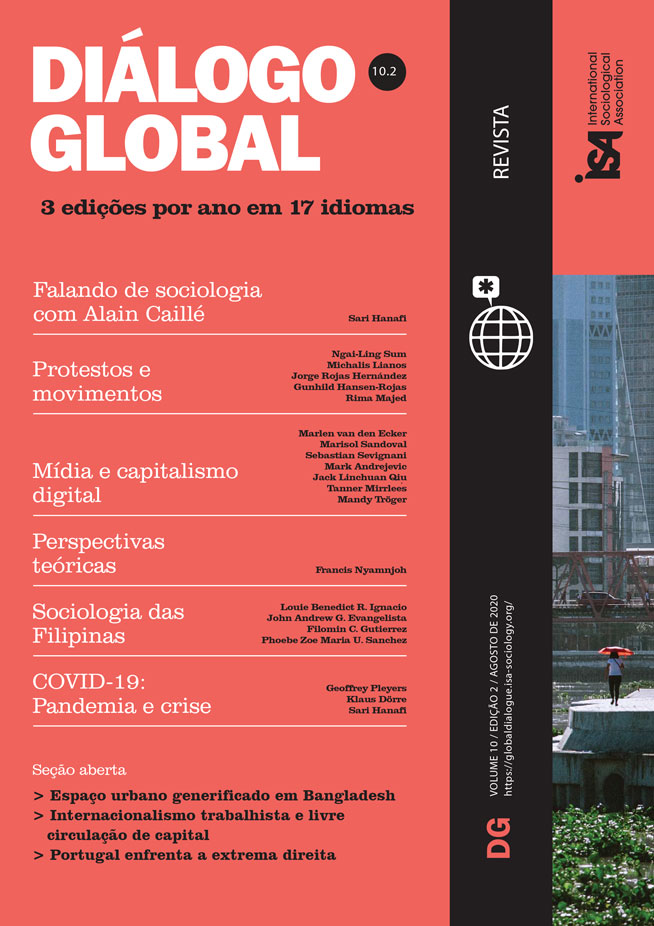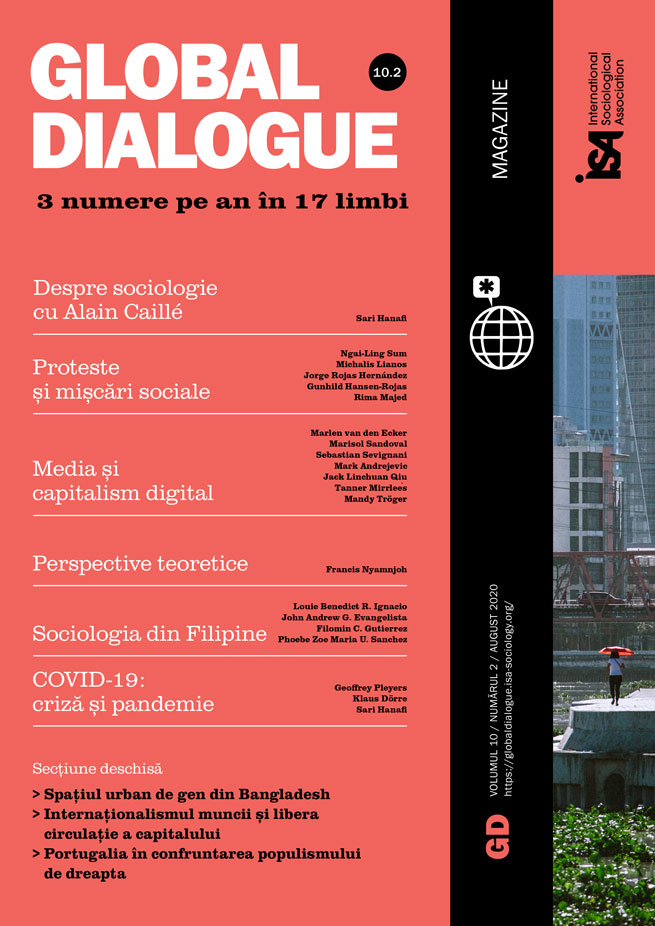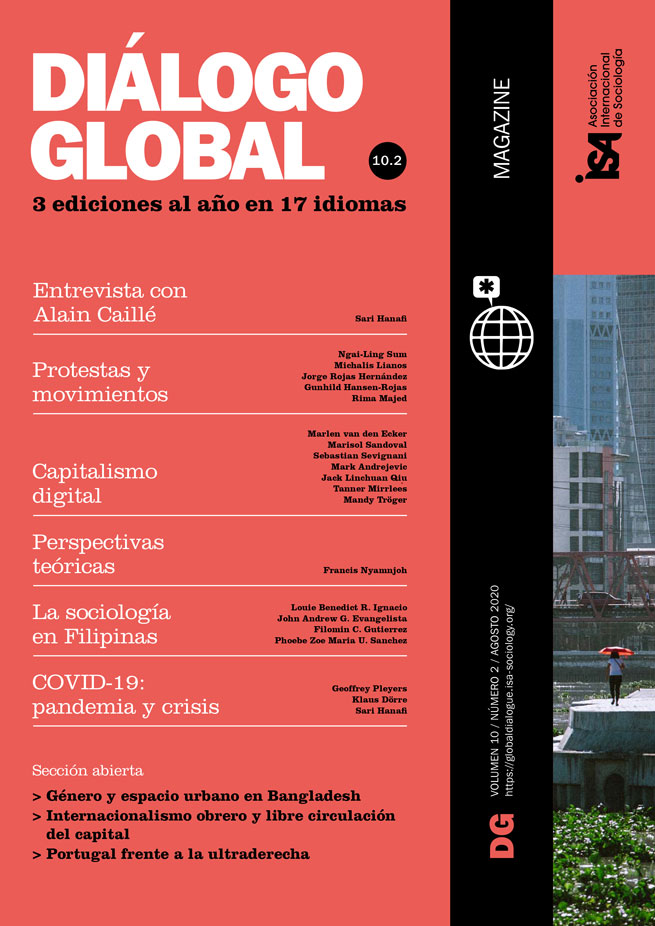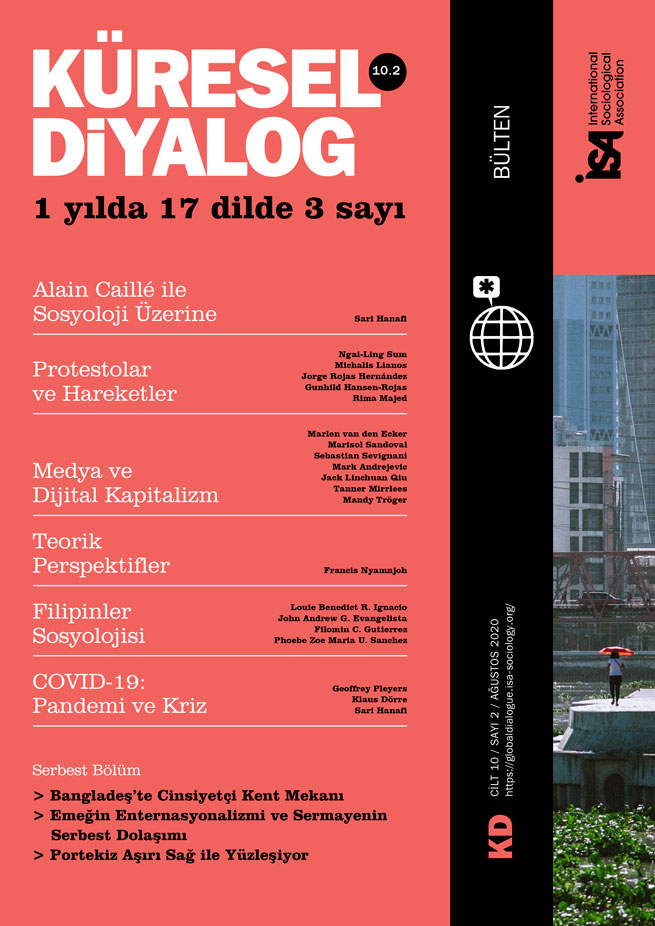Before the outbreak of Covid-19 and the enactment of restrictions regarding movement and the right of assembly, many countries around the globe saw a rise of social protests manifesting in marches and demonstrations. These protests, which were expressed foremost on the streets, tackled different issues and demands. This symposium includes four pieces reflecting on the specific forms these social movements and protests took in Lebanon, Iraq, France, Chile, and Hong Kong.
The symposium opens with an article by Ngai-Ling Sum, who examines the protests that took place in the streets of Hong Kong in June 2019. Sum interprets the protest from a neo-Foucauldian view and shows how, under illiberal authoritarian conditions, it spiraled into a social movement, how the struggle was expressed through the sovereign’s increasing assertion of its control by using disproportionate police violence, and how the affirmative biopolitics of the front-line insurgents culminated in the protection of life from (near) death.
In November 2018, protests by the Yellow Vests emerged all over France, initiating a new structure and practice of social movement. In his article, Michalis Lianos gives us an insight into this spontaneous and non-partisan form of movement that challenges our sociological understanding of the organization, architecture, and success of collective political action and reflexivity.
After 40 years of neoliberal politics and ongoing protests in Chile, a new emancipatory consciousness developed among Chileans, triggering massive and creative protests in October 2019. Jorge Rojas Hernández and Gunhild Hansen-Rojas describe the country’s social crisis stemming from neoliberalism, the unique historical opportunity Chile is facing, and the social protests that led to the convocation of a referendum on the creation of a new constitution.
We round out this symposium with Rima Majed’s examination of the uprisings that took place in October 2019 in Iraq and Lebanon. Majed analyzes these uprisings in terms of the revolutionary process that arose in the political system known as consociational democracy. In search of a lost “we,” the social actors have to keep their social and political focal point on the demand for socio-economic justice while rejecting the system of sectarian power-sharing.
Johanna Grubner, Johannes Kepler University, Austria and Assistant Editor of Global Dialogue
